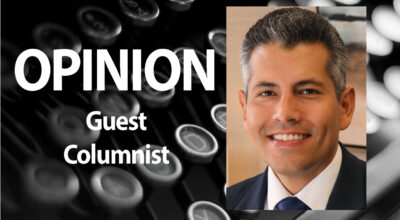‘Circle the Wagons’ for Cruz and Rubio
Published 8:54 am Wednesday, January 27, 2016
By RD Skidmore, Prof.
‘Circle the wagons’ cry the talking heads bugling that being a citizen of the United States is equal to being a Natural Born Citizen; thus citizen is qualified constitutionally for President of the United States (POTUS). Simply put, these are not equal terms in meaning constitutionally, yet they publicize their confusion originating in ignorance of our Constitution and the writings of the founding fathers.
Running for POTUS is not the same as running for the Junior Class presidency, though one might think it is as the qualifications for this high office are disregarded.
In the current brouhaha around Senator Cruz, he repeats the collective error and adds that it “is settled law.” As to settled law, it is, but not as he hopes or those supporting him. Having only one citizen parent, his citizenship is not equal to natural born citizen as constitutionally required, and this does not apply to him alone.
One need only refer to the historical writings and court cases of our nation beginning with the SCOTUS case Minor v. Happersett (1874); David Ramsey, a founding father from South Carolina, a delegate to the Continental Congress in 1782-1783 and 1785-1786, was the Acting President of the United States in Congress Assembled during our Revolutionary War, one of the American Revolution’s first major historians, who wrote, A Dissertation on the Manners of Acquiring the Character and Privileges of a Citizen (1789) ; Justice Joseph Story, Supreme Court Justice, Dane of Harvard Law while a sitting SCOTUS justice, wrote Commentaries on the Constitution of the United States (1833); The Library of Congress, the CRS Report for Congress, Presidential Elections in the United States: A Primer, April 17, 2000 by Kevin J. Coleman, et.al.
The supreme testament to this settled law is the SCOTUS case Minor v. Happersett (1874); the only SCOTUS case to look at the qualifications for POTUS, stating that anatural born citizen is a child of parents (note the plural, thus father and mother) who are citizens of the United States at the time of their birth. This precedent finding has nothing to do with where the child is born.
Chief Justice John Marshall, delivering the opinion of the Court in Marbury v. Madison (1803) stated “It cannot be presumed that any clause in the constitution is intended to be without effect; and therefore such construction is inadmissible, unless the words require it.” “Citizen,” “naturalization” and “natural born Citizen” are ALL in the original, un-amended Constitution; therefore, none can mean the same thing.
As all three terms for citizenship are in the Constitution, and none are equal to each other, they possess distinct differences, and can be ranked in their importance, function and value; what are those distinctions?
First is the Natural Born Citizen; qualified for the office of POTUS is a child born to parents (note the plural—a mother and father) who are citizens of the United States (SCOTUS case Minor v Happersett, 1874)—jus sanguinis, inheritance by blood. The parents need not be natural born citizens as they can be citizens or naturalized citizen(s) when their child is born. It is because the parents are citizens of this country at the time their child is born that the child inherits natural born citizen status.
Second is Citizen. This is an individual who is a citizen of the United States though not qualified to hold the office of POTUS. This person may be born in the United States to parents whom one or neither are citizens of the United States; the ‘anchor baby’(Senator Rubio)—jus soli, inheritance by where you are born; a child born whereby one parent is a citizen of the United States and the other is not a citizen is subordinated by congressional restrictions.
Third is the Naturalized Citizen; an individual of foreign/alien birth; parents, both or one, were not citizens of the United States and is transported to the United States, surrendering their citizenship of another nation to become a citizen of the United States; as prescribed by congressional statute, made application and taken the oath of citizenship. This form of Citizenship is restrained in Article II, Section 8, Paragraph 4 of the Constitution, describing the Congressional responsibility stating “To establish an uniform Rule of Naturalization…” Though the United States Department of State administers the laws of Naturalization as established by Congress, it remains ONLY in the preview of Congress to write the law’s of Naturalization. This individual is not qualified for the office of president (Senator Cruz).
Which office holder and candidates meet the natural born citizen status?
Richard D. Skidmore is a professor at Pierce College in Woodland Hills, Ca. He may be contacted at skidmord49@excite.com.





